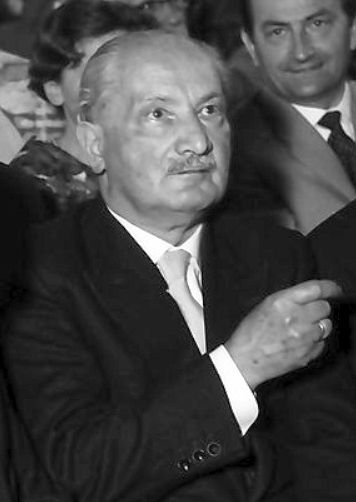Martin Heidegger citations célèbres
“Ce n’est pas par des paroles que s’engagent les décisions, mais seulement par le travail.”
Qu’est-ce qu’une chose, 1962
Citations de la pensée de Martin Heidegger
, 2013
, 1946
I see the situation of man in the world of planetary technicity not as an inexitricable and inescapable destiny, but I see the task of thought precisely in this, that within its own limits it helps man as such achieve a satisfactory relationship to the essence of technicity. National Socialism did indeed go in this direction. Those people, however, were far too poorly equipped for thought to arrive at a really explicit relationship to what is happening today and has been underway for the past 300 years.
en
Interview recueilli en 1966 sous la condition d'une publication posthume, qui fut réalisée en 1976 par Der Spiegel .
Interview du Spiegel, 1966
Martin Heidegger Citations
“Le pur et simple passé n’épuise pas ce qui a été. Ce qui a été continue d’être […].”
Qu’est-ce qu’une chose, 1962
sérénité
Questions III et IV
“La philosophie compte parmi les plus originels des efforts humains.”
Qu’est-ce qu’une chose, 1962
“Le repos n’est que mouvement se retenant en soi, souvent plus inquiétant que le mouvement même.”
Qu’est-ce qu’une chose, 1962
Being and Time
Martin Heidegger: Citations en anglais
“In its essence, technology is something that man does not control.”
Der Spiegel Interview with Martin Heidegger, 1966
“We ourselves are the entities to be analyzed”
Macquarrie & Robinson translation, ¶9
Being and Time (1927)
Introduction: The Exposition of the Question of the Meaning of Being (Stambaugh translation)
Being and Time (1927)
Introduction: The Exposition of the Question of the Meaning of Being (Stambaugh translation)
Being and Time (1927)
Introduction: The Exposition of the Question of the Meaning of Being (Stambaugh translation)
Being and Time (1927)
What Is A Thing? (1935, 1968)
is historical, because every report of the past, that is of the preliminaries to the question about the thing, is concerned with something static. This kind of historical reporting is an explicit shutting down of history, whereas it is, after all, a happening. We question historically if we ask what is still happening even if it seems to be past. We ask what is still happening and whether we remain equal to this happening so that it can really develop. p. 43
What Is A Thing? (1935, 1968)
We lay this written statement beside the thing of which it is the truth. After the lecture is finished both doors are opened, the classroom is aired, there will be a draft, and the scrap of paper, let us suppose, will flutter out into the corridor. A student finds it on his way to the cafeteria, reads the sentence. "Here is the chalk," and ascertains that this is not true at all. Through the draft the truth has become an untruth. Strange that a truth should depend on a gust of wind. ... We have made the truth about the chalk independent of us and entrusted it to a scrap of paper. p. 29-30
What Is A Thing? (1935, 1968)
